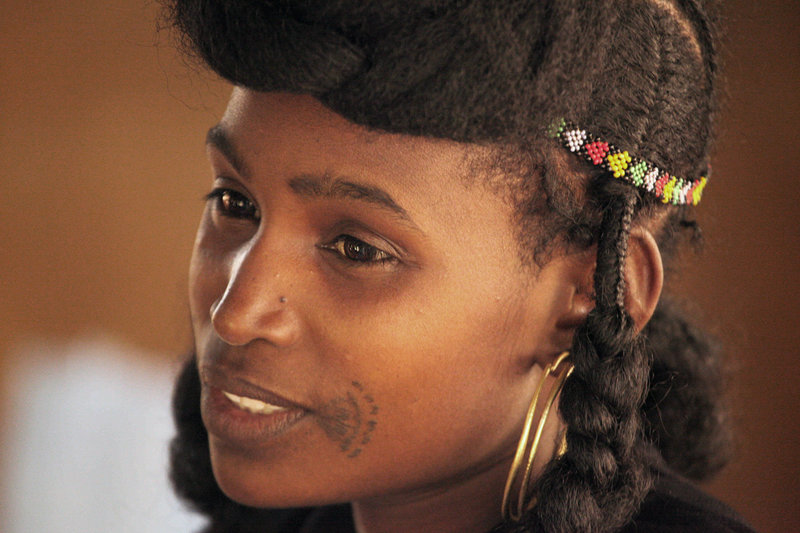Fulani Wedding
Fulani or Fula people live Nigeria, Guinea, Mali, Niger and several other African countries. There are up to 25 million Fulanis. They are Muslims.
In most cases they marry according to their own cast system. In this system there are nobles, blacksmiths, business people and slaves. A Fulani man can have up to four wives. They usually marry a woman from their own tribe. Distant cousins can be married. Most marriages are arranged.
Their wedding has three basic stages. The first one is known as "sharo". In this stage a man has to be whipped in public. Quite large crowd gathers to observe the event.
If the man cries he will not be allowed to get married. In some Fulani communities this tradition does not exist. Already mentioned nobles never participate in the "sharo".
The second stage is called "koowgal". This stage is the main one. The bride's father visits the groom's family. He brings a dowry which includes cattle.
The groom then gives some presents to the bride. This is so called bride's price. The groom is also expected to show his father-in-law that he is capable of taking care of the cattle. After doing so it is believed that the relationship between the bride and groom is set.
The third stage in Fulani wedddings is known as "kabbal". It is kind of Islamic wedding ritual. A groom and bride do not have to be present. A bride-to-be goes to her new home where she is met by the local women.

After the Islamic wedding ceremony and paying of the dowry some Fulani people organize a wedding reception.
Brass bracelets are very important. A bride wears four of them on her legs while two are worn on the hands. She has to wear these bracelets between four and six months. During this period the youngest woman in groom's home takes care of her.
One of dances at Fulani weddings is "tumudi". It is danced by a group of young women. The music for this dance is performed on various wind instruments and drums like for example "gungun".
References Fula people https://en.wikipedia.org/wiki/Fula_people Chinwe Esther, Fulani Traditional Marriage List And Requirements https://constative.com/people/lifestyle/fulani-traditional-marriage-list-and-requirements Fulani Marriage: The Fulani Tribal Marriage ceremony http://hubpages.com/relationships/Fulani-Marriage-The-Fulani-Tribal-Marriage-ceremony Romoke W. Ahmad, The glitter and glamour of Fulani weddings http://www.dailytrust.com.ng/sunday/index.php/feature/3166-the-glitter-and-glamour-of-fulani-weddings photography Fulani woman from Niger (photo by Steve Evans, Flickr) https://www.flickr.com/photos/babasteve/4986235318/
